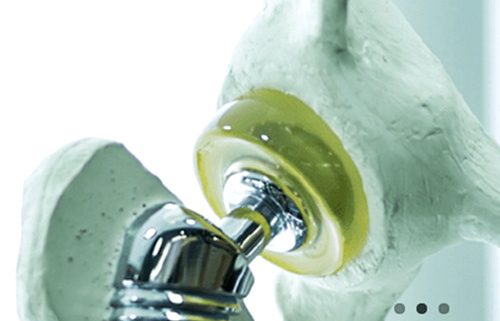What’s CP titanium?
Titanium is classified into two categories according to the content of titanium and other impurity composition such as aluminum (Al) and vanadium (V): Commercially pure titanium (CP Titanium) and titanium alloys. CP titanium provides corrosion resistance, strength and fatigue characteristics that compare favorably to those of nickel and steel alloys.
CP titanium is widely used in the medical engineering and chemical process industries and the manufacture of sheet plate, forging and pipes which work in the temperature between 253 and 350 ℃ or requires ratio of strength to weight. We can say that CP titanium is a compact metal with a content of more than 98% titanium and a small amount of impurity elements such as Oxygen, Nitrogen, Hydrogen, Carbon, Silicon and iron. Oxygen, Nitrogen and Carbon all increase titanium’s tensile strength at room temperature but also reduce its plasticity, so there are strict limits on their content for pure titanium, especially the existence of oxygen. The solubility of hydrogen in titanium is very small and its reaction in titanium is reversible. The main effect of hydrogen on the properties of titanium is “hydrogen embrittlement”. When the hydrogen content reaches a certain amount, it will greatly increase the sensitivity of titanium to the notch, thus sharply reducing the impact toughness. It is generally stipulated that the hydrogen content in titanium shall not exceed 0.015%.
The strongest grade of unalloyed grades 1, 2, 3 and 4, this is a commercially pure, moderately formability alloy with good ductility. Other countries have different specification for pure titanium, such as Japan JIS Class l, 2, 3; UK IMI 115, 125, 130, 155, 160; Germany DIN 3.7025, 3.7035, 3.7055, 3.7065 and China TA1, TA2, TA3, etc. The grades 1, 2, 3 and 4 is the mostly used material specification form American Society for Testing Material.
| ASTM CP Ti | Ti | Fe | C | O | H | N |
| Grade 1 | Balance | 0.20 | 0.08 | 0.18 | 0.015 | 0.03 |
| Grade 2 | Balance | 0.30 | 0.08 | 0.25 | 0.015 | 0.03 |
| Grade 3 | Balance | 0.30 | 0.08 | 0.35 | 0.015 | 0.05 |
| Grade 4 | Balance | 0.50 | 0.08 | 0.40 | 0.015 | 0.05 |
Grade 1 titanium is the softest and most ductile of these grades in the commercially pure family. It possesses the greatest formability, excellent corrosion resistance and high impact toughness. Because of all these qualities, Grade 1 is the material of choice for any application where ease of formability is required and is commonly available as titanium plate and tubing.
Grade 2 is the most widely used titanium alloy in all product forms for industrial service, offering an excellent balance of moderate strength and reasonable ductility. Especially it has highly corrosion resistant in highly oxidizing and mildly reducing environments, including chlorides. It was widely used in almost every application that needs Ti such as chemical processing, dimensional stable anodes, medical industry, marine industry, automotive parts and airframe structure.
Grade 3 is used in applications requiring moderate strength and major corrosion resistance and it is least used of the commercially pure titanium family, but that does not make it any less valuable. Grade 3 is stronger than Grades 1 and 2, similar in ductility and only slightly less formable, but it possesses higher mechanicals than its predecessors.
Grade 4 is known as the strongest of the four grades of CP titanium family. It is also known for its excellent corrosion resistance, good formability and weldability. Grade 4 is normally used in the industrial applications and found a niche as a medical grade titanium recently.
LKALLOY offers several different commercially pure ASTM B348 and ASTM B265 Titanium Grades 1, 2, 3 and 4. More details about new information and price, call for us today or email [email protected]



